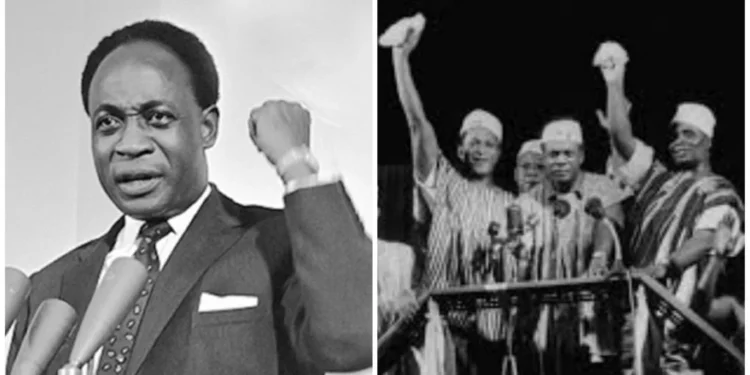Former Executive Vice President of Unilever Ghana and Nigeria, Yaw Nsarkoh, says Africa’s democratic dysfunction is not merely a policy failure.
According to him, it’s a historical inevitability rooted in the continent’s tragic starting point.
In an interview on JoyNews’ PM Express following his provocative lecture “Iniquities of Iniquity in Our Santa Claus Democracy,” he argued that many of Africa’s leaders inherited broken structures, faced uncharted terrain, and became pioneers without predecessors, and it shows.
“You take someone like Nkrumah, who was he learning from?” Yaw Nsarkoh quizzed.
“Whose mistakes could he study? These people were pioneers. They were navigating terrain with no compass, no predecessors, and no playbook. And we’re still paying for that.”
He said the failure of post-colonial democracy in Africa stems from this fundamental void—an elite class forced to construct nations from the ruins of colonialism, while simultaneously battling for survival in a global order already stacked against them.
“Our democratic project started not with the control of sovereign productive forces but with a flag, an anthem, and a dark-skinned president,” he said sharply, referencing Kabral Blay-Amihere. “That is not independence.”
For Yaw Nsarkoh, the rot is systemic and historic. “The colonial hangover is real,” he said.
“The post-colonial elite simply took over the levers of the state and became new colonialists. They built nothing for the people—they just inherited power and used it to look after themselves.”
Yaw Nsarkoh said African democracies were built on “distorted realities.”
Unlike Western democracies that emerged after centuries of capital accumulation and institution building, Africa was asked to adopt a system without the economic and historical foundations to sustain it.
“The West started modern democracy when they already had wealth to distribute. Africa was forced into a democracy while still crawling from under the wreckage of colonialism. It’s not the same conversation.”
He dismissed attempts to compare Ghana with countries like Singapore as disingenuous.
“The starting points were different,” he said. “Singapore didn’t have to carry the same weight of colonial distortion. They weren’t starting with GDPs below $3,000 per capita and broken institutional memory. We were.”
He lamented that local government in Ghana has effectively collapsed, and that what passes for democracy is little more than “a public auction for the highest bidder.”
“What we have is not participation—it is transaction,” Nsarkoh said. “Citizens are no longer participants in democracy. They are ballots, bought and sold.”
At the heart of his critique is a deep disillusionment with the elite consensus and how it perpetuates the illusion of progress.
“We celebrate elections like they are proof of democracy. But what we have is Santa Claus democracy—a system of gifts and giveaways, not accountability,” he said.







